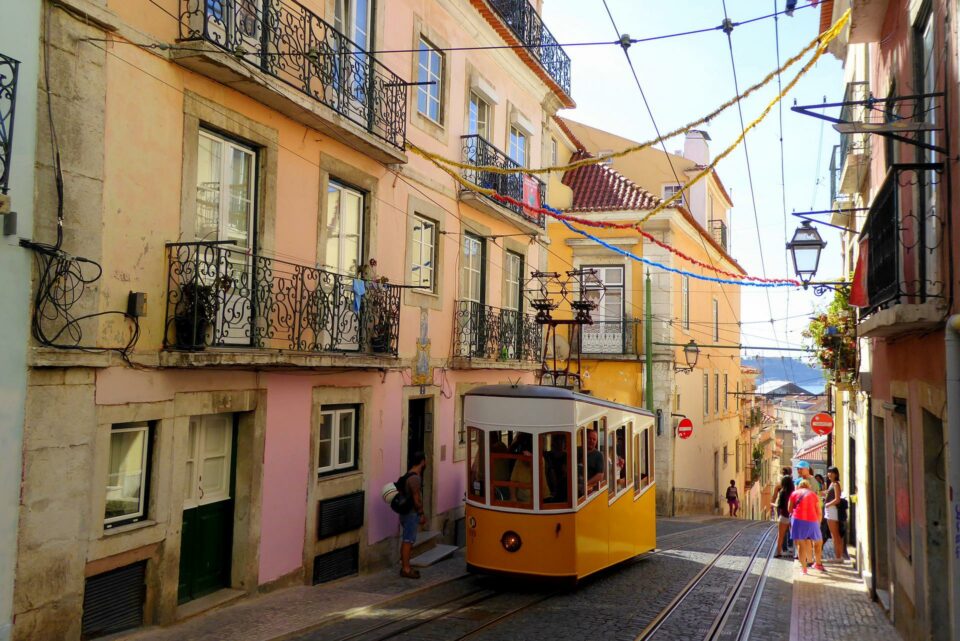The magnificent capital of Portugal overlooks the Atlantic Ocean and offers its visitors beautiful natural spectacles, always clear and transparent skies and dreamlike panoramas. There are several attractions that Lisbon has to offer and there is something for everyone. Perfect both for families and friends and couples, the westernmost European capital offers solutions suitable for every type of need.
A lively city rich in things to see that finds architecture a major strength. Of course, the most characteristic view of the city is that of its numerous streets crossed by the famous giallo stretch: a symbol of the place. Gli scorci lisbonesi vengono impreziositi dalle case arroccate one on the other, while the oceanic breeze carries with it an inestimabile seafaring tradition.
The Indies were discovered by Vasco Da Gama departing from Lisbon. In the next row, instead, we will discover the best touristic proposals in Lisbon, from the panorama to the historical places, until we get to the possibilities of leisure in the Portuguese capital.
Alfama
Let’s start from the oldest quarter of the city. It stands on the slope between the Castelo de Sao Jorge and the River Tagus. The facades of the houses with the corroded plaster, the stained tiles and the vicoli stretti leave no doubt, oozing history. At the time of Arab domination, Alfama was a qasbah. At the time, the area represented the entire city, given that the Lower area had not yet been built.
It was precisely in that historical period that the neighborhood reached its peak in terms of development. Alfama was the residence of nobles and merchants and, to this day, the rich Moorish buildings are a living testimony of that flowery parentage. With the passing of time and the development of new neighborhoods, then, Alfama became home to fishermen and porters who worked near the Tagus.
Currently, modernity is not allowed in Alfama. There is no car, no supermarket or trendy restaurants. The neighborhood is perfect for a stroll immersed in the city’s enchanting history. To accommodate visitors, characteristic botteghe, drug store and fado houses, that is, places where the folk music of the area is played.
Praça do Comércio
The largest piazza in the Portuguese capital. Located in the estuary of the Tagus river, it hosted for two centuries the Palazzo Reale Ribeira, destroyed by a severe earthquake in 1755. The piazza was then rebuilt by the Marchese of Pombal, inserting it into the larger context of the luxury Baixa district. The place became the nerve center of the trade of foreign products. In Piazza, the financiers commissioned the navigators to ship to the New World.
come down
Comprised between the rivers Tagus and Rossio, the district of the Baixa runs straight and parallel following a precise geometrical order. It represents the heart of the city of Lisbon. Elegant and very active during the day, it hosts fashionable shops, restaurants, pastry shops and several bars. It is an important economic and commercial center and presents one of the best panoramic attractions in the capital: the Santa Justa Elevator. If it is a neogothic-style elevator-monument that leads to a simply breathtaking view of the city.
Casino Lisbon
Located in Parque das Naçones, Casino Lisboa was inaugurated in 2006. It has hundreds of slot machines and, for a period, created quite a few problems for the Estroil, one of the largest casinos in Europe. Among the various games on which it is possible to bet, Lisbon also offers baccarat. Il luogo offers a decidedly interesting leisure possibility, perfect whether you are in the city for vacation or for work. Intriguing card games and numerous other games make Casino Lisboa’s proposal decidedly varied. For those who cannot travel, he recalled that many of these games offered by Casino Lisboa are also present on mobile game platforms, which offer casino games always at your fingertips.
Tower of Belém
A wonderful work, circondata dall’azurro del cielo e del mare che si concontrano. Its grigio pearl color makes it shine in the sun. The Tower of Belém is one of the most representative monuments of the city and, obviously, it stands out among the most visited points by tourists. UNESCO has defined it as a World Heritage Site in 1983.
This is a thirty-meter bastion, around which four turrets were built by King Giovanni II to defend the mouth of the Tagus river. Although the works were started in 1515, the death of the soprano sovereign led Manuel I to finish the tower. The mixture between the Gothic and the Byzantine style with which it was built is defined as “Manueline” precisely for this reason.
It would seem, then, that following the displacement of the coast, the position of the tower had changed. At first, in fact, it arose in the middle of the water, while now it is almost on the river bank. For many years, he believed that his displacement was due to the earthquake of 1755. The view offered by the tower has absolutely no equal, specchiandosi in the Portuguese crystalline sea.

